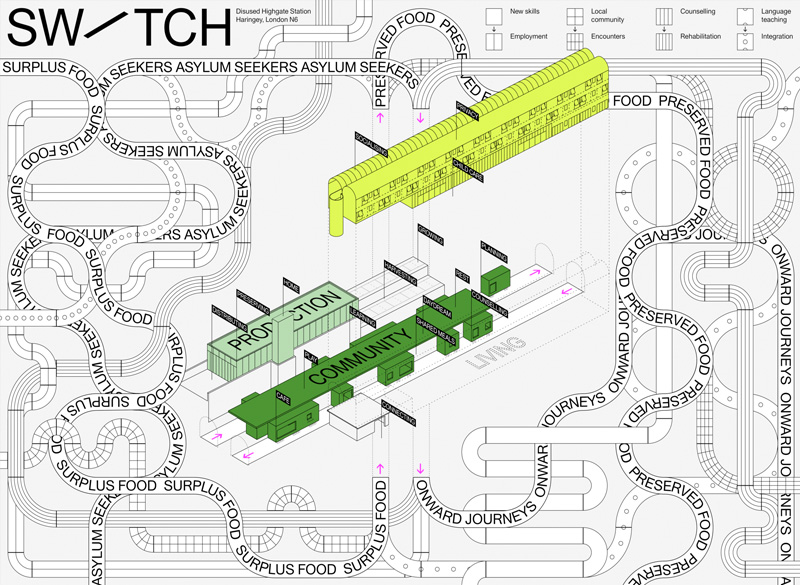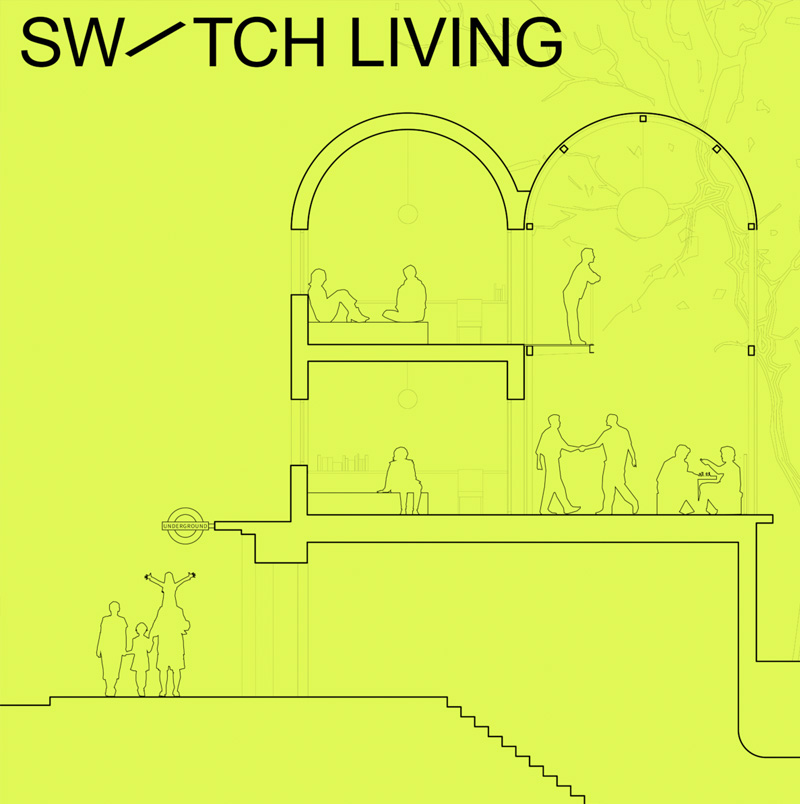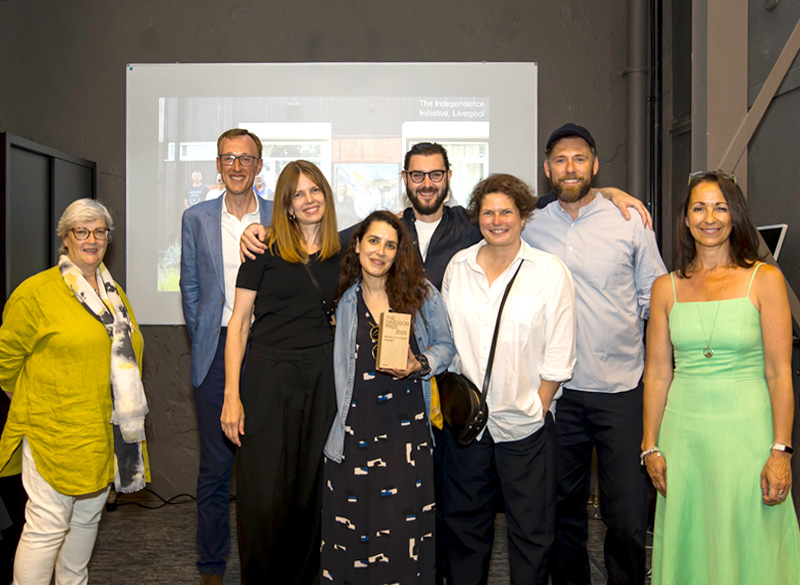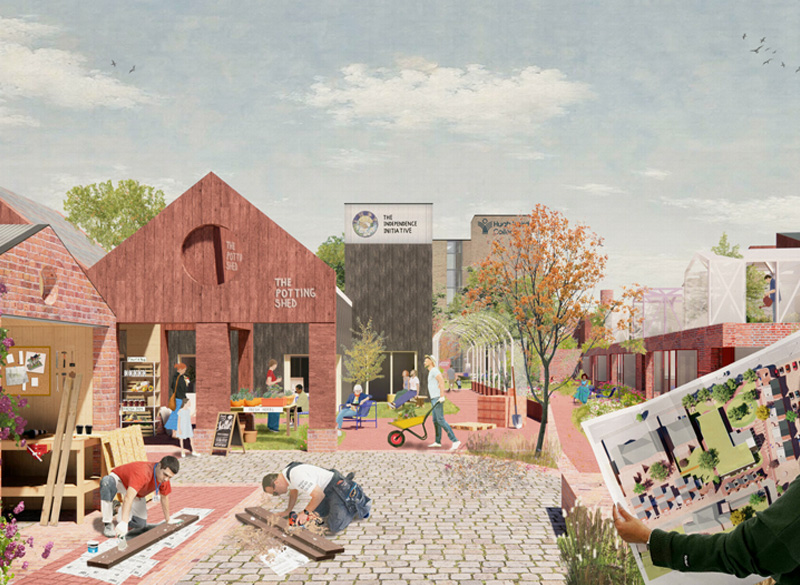The Davidson Prize awards ceremony was held on June 20th as part of the London Festival of Architecture at the Istituto Marangoni in Shoreditch.
The ceremony was attended by this year’s jury panel, our Chair, Sadie Morgan, Founder of dRMM and The Quality of Life Foundation, Yemí Aládérun, Senior Development Manager at Meridian Water for Enfield Council, Osama Bhutta, Director of Policy, Campaigns and Communications at Shelter, Priya Khanchandani Head of Curatorial & Interpretation at the Design Museum and Charles Holland, Principal of Charles Holland Architects (winner of the 2022 Davidson Prize).
First up was the People’s Choice Prize then each of the 3 finalists presented their concepts before The Davidson Prize winner was announced by Sadie Morgan.
Thank you to everyone who came down to celebrate the 2023 longlisted, finalist and winning submissions of The Davidson Prize.
The judging panel had three outstanding finalists to choose from and we are delighted to announce the winner of the 2023 Davidson Prize. Congratulations to Studio Mutt and Neighbourhood with The Independence Initiative, Hugh Baird College, Islington Hostel Outreach, Amber Akaunu, Peter O’Neil, Dead Good Poets Society on winning this year’s £10,000 prize.
The Davidson Prize – Winner
Helping Hands
Studio Mutt and Neighbourhood with The Independence Initiative, Hugh Baird College, Islington Hostel Outreach, Amber Akaunu, Peter O’Neil, Dead Good Poets Society
About the project
Helping Hands addresses the urgent need for temporary homeless accommodation and support services in Bootle, Liverpool, with a particular focus on the needs of young people leaving the care system. The team’s project proposes a nurturing communal landscape for people facing homelessness – co-created by residents, neighbours and specialist support organisations.
Sadie Morgan, Chair of the 2023 Davidson Prize jury, said:
“The idea of homelessness is unsettling to all of us, but the care and quality of creative thought behind this year’s submissions to The Davidson Prize has helped push the debate forward with innovative and workable solutions. Collectively, this year’s entries show the value of multidisciplinary design thinking to a subject that needs tackling now. Choosing an outright winner was tough; what tipped it for Helping Hands was the sense of people working together on the ground, building on existing community infrastructure, and taking collective responsibility for a better future.
The level and quality of engagement with service users and providers was extremely impressive, and the judges applaud the idea of a project deeply rooted in place. The solution applies design intelligence to tap into and join up local support networks – with tangible and visible results.”
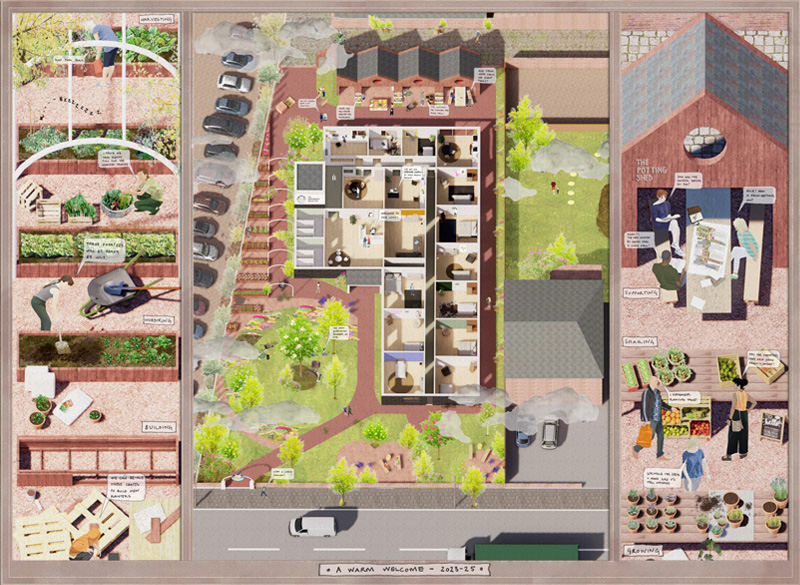
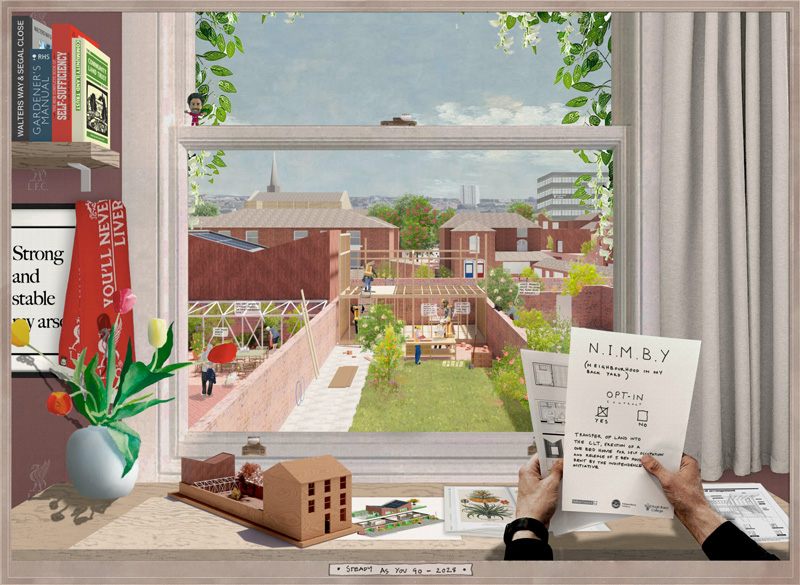
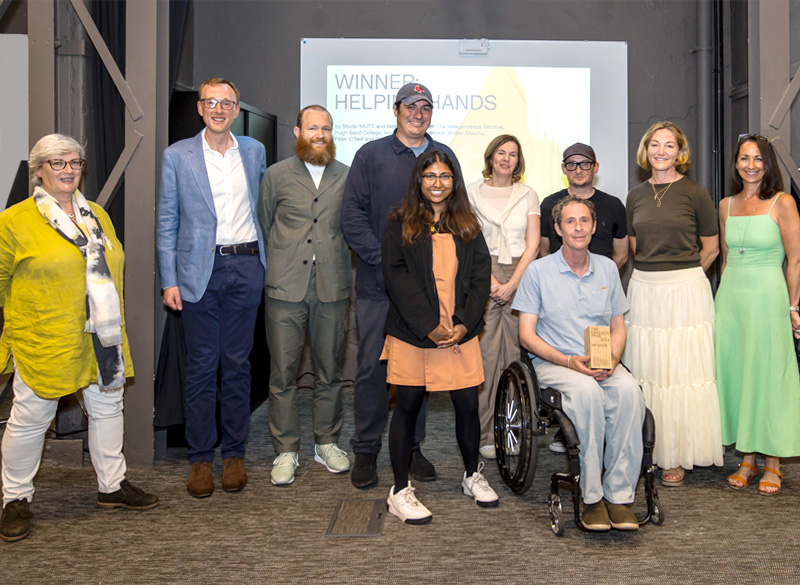
The Davidson Prize – Finalist
More Not Less
Re-Group: ZCD Architects and Madeleine Kessler Architecture with Datshiane Navanayagam, Architecture Doing Place, JCLA, Webb Yates Engineers, Charles Jegar, Gene Limbrick and Poppie Skold
About the project
Design codes reinventing temporary accommodation for positive futures.
Re-Group’s team has lived experience of hidden and childhood homelessness, with expertise across policy, architecture, landscape, play, engineering, trauma counselling and broadcast journalism.
Homelessness is either preceded by trauma or causes trauma. This is often exacerbated by ‘temporary accommodation’ – often not short-term – before rehousing. The devastating failings of unregulated triage housing – which cannot be called ‘homes’ – significantly add to the trauma of those most in need. There is frequently a lack of space, privacy, safety, ownership, agency, sense of community and attention to wellbeing. There are no regulatory standards for temporary housing, with new-build schemes approved on a sui generis basis.
More Not Less responds with a design code to encourage aspiration rather than a race to the bottom. The proposal tests its principles on a design for an intergenerational living place, mainly for families with children. The site on Kingsland Road in Hackney, London, currently has planning approval for a temporary accommodation scheme that Re-Group believe is not fit for purpose.
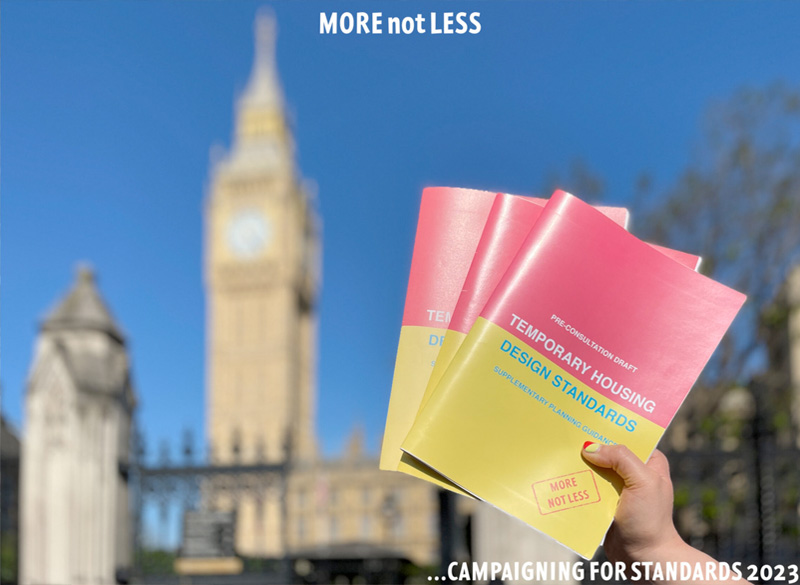
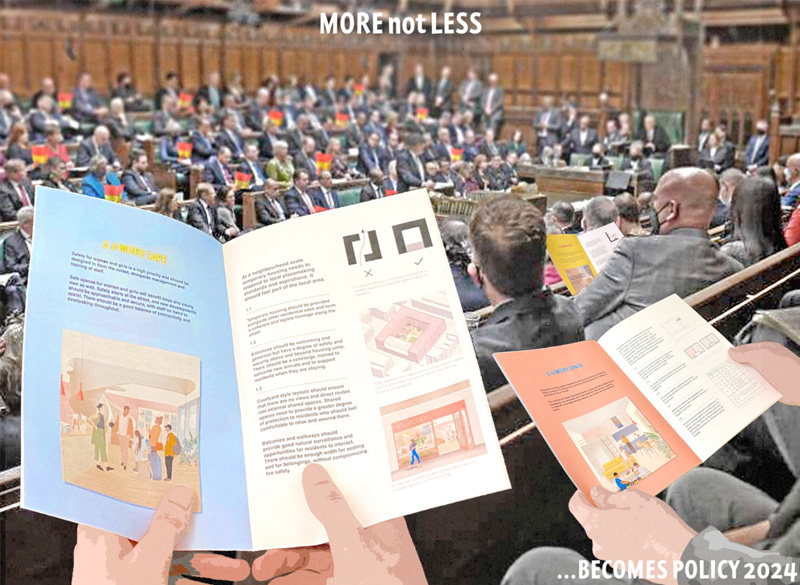
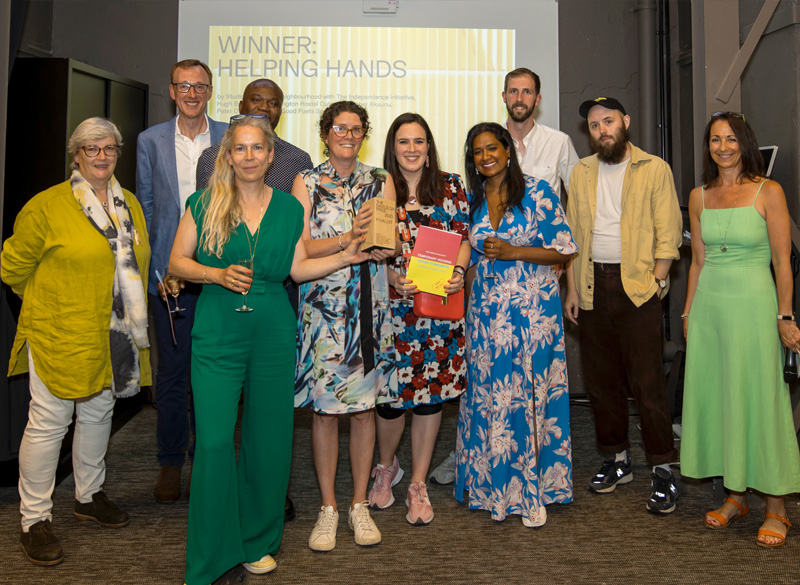
The Davidson Prize – Finalist
Home Building
Wild & SNaB
About the project
Harnessing learning, collaboration and sustainable production to generate a sense of belonging.
Focusing on the health and social benefits that come from living closely with nature, this proposal imagines that a community land trust has acquired a narrow site bordering arable land – a common scenario due to inaccessibility to contemporary farm machinery. Such plots are neither harvested nor rewilded and are of little interest to housebuilders due to their scale. For this reason they can often be purchased at below agricultural rates.
Drawing on the experience of team member Barbara Jones who co-founded The School of Natural Building (SNaB), Home Building is a 12-month design and construction course offered to teenagers leaving care, people leaving the armed forces, ex-prisoners, and asylum seekers over the age of 16, with the intention of assembling a group from diverse backgrounds.
Twelve homes of varying sizes and a multifunctional live / workspace for a community of 50 will be constructed using locally sourced natural materials– with particular focus on straw as a by-product of agricultural activity.
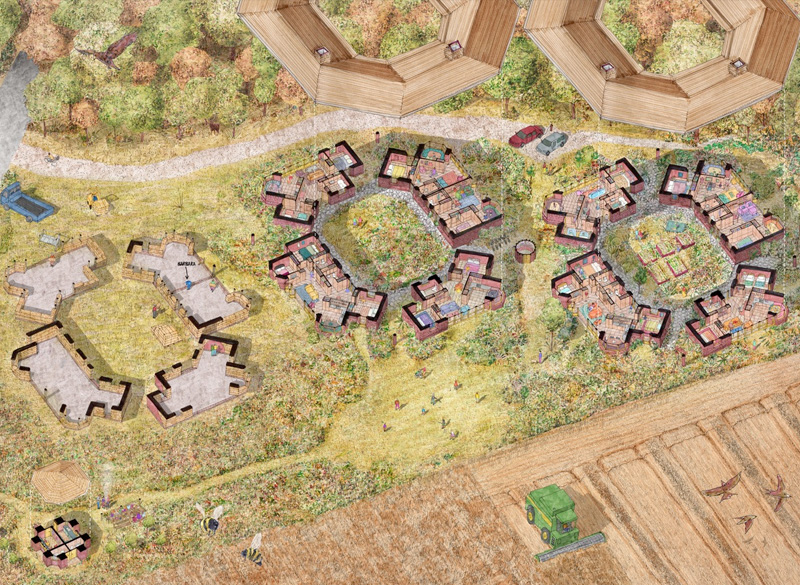
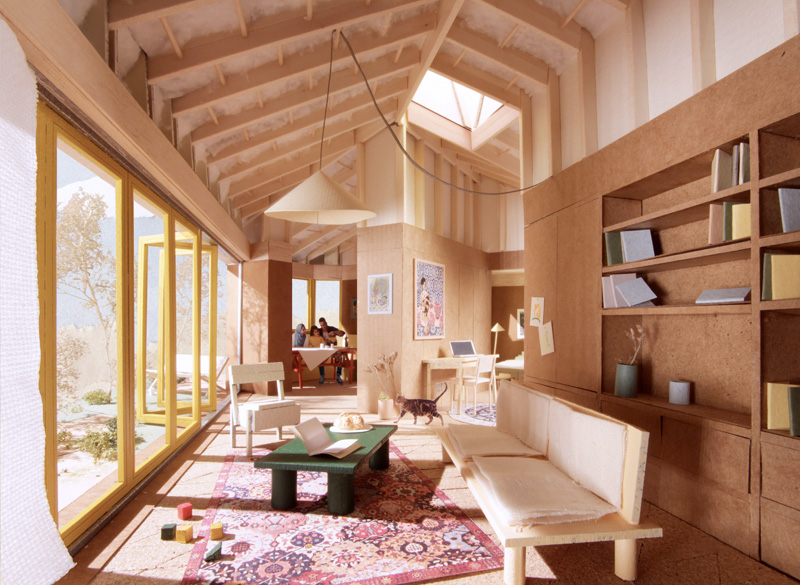
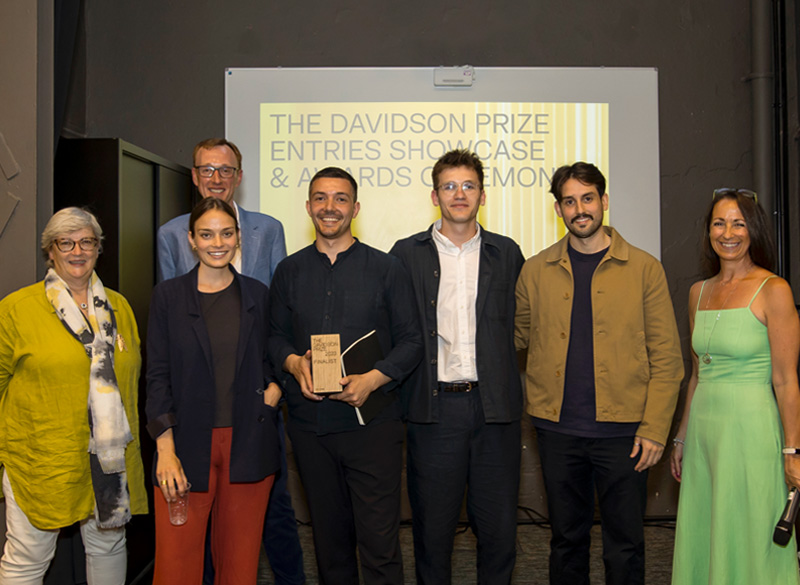
People’s Choice Prize – Winner
Switch
Rifugio
About the project
The winner of the first People’s Choice Prize was Switch by Rifugio. A total of 882 people voted in the public poll, with Switch receiving more than 20% of the votes. The team proposed repurposing a disused station in Highgate, London as place where asylum seekers are offered sanctuary to process the trauma of their preceding journey. Assisted by food-based projects and the rituals of everyday life, inhabitants are supported to make a switch towards a chosen onward journey.
Repurposing a disused station with a linear modular design rooted in productive community. Situated at Highgate Station, the intervention aims to reanimate a disused station that once sheltered Londoners during the Blitz. The site provides security for asylum seekers to process their preceding journey and affords the conditions, assisted by food-based projects, to make a switch towards a chosen onward journey. The design promotes the idea that everyday rituals are vital social practices required to create meaningful spaces for diasporic communities.
Inspired by the elongated volumes of train sheds, the linear modular design responds to the needs of each person, couple or family while providing a nursery on the ground floor. The vaulted translucent body of the winter garden reconsiders deck access as a flexible space for socialising regardless of the weather and a central platform offers protection for people to gather and share communal meals. Using the existing train tracks, the mobile carriages can be organised for private use or interlocked for larger common purposes.
